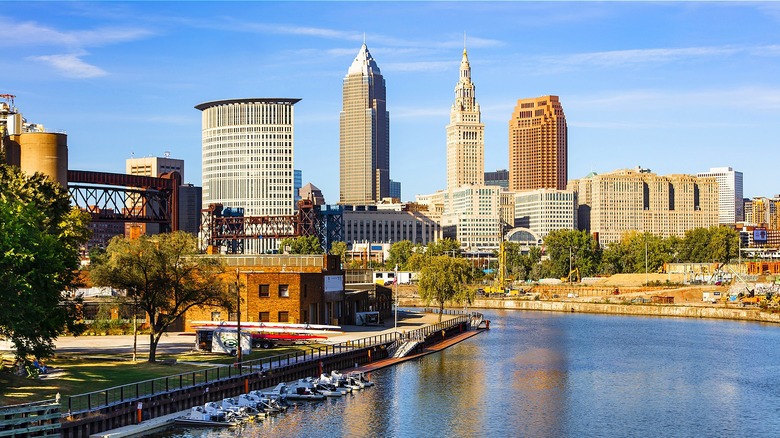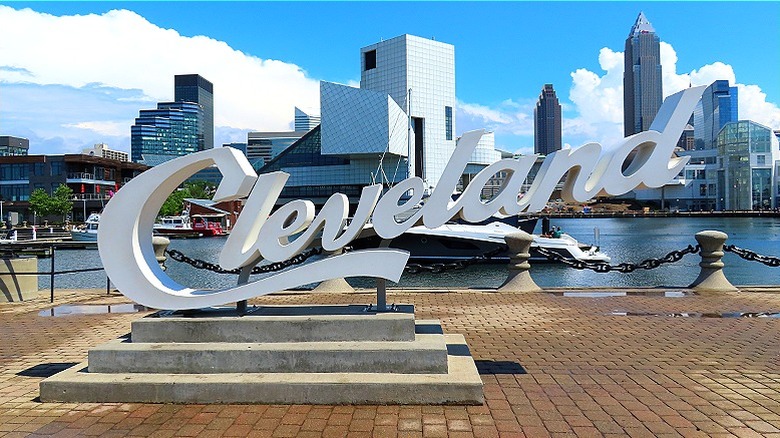You Might Want To Consider Retiring In This Overlooked Midwest City
When planning your dream retirement location you might be debating what, exactly, to prioritize. From preferring weather and beautiful scenery to needing close proximity to family, finding the right place to retire can require you to really assess what kind of lifestyle you want to have during your golden years. While access to beaches or your own private dock might be appealing when shopping for the right place, finances can (and should) be an important consideration. According to a Northwestern Mutual survey, only 49% of baby boomers believed they would actually be financially prepared when they retired. Even worse, a 2024 survey from LiveCareer found that 61% of people were more worried about retirement than they were about death.
While retirement can come with a lot of physical and emotional changes, the financial changes attached to it can be the biggest surprise for retirees. This financial concern can be further exasperated when you realize just how uncertain the future of Social Security is (plus the fact that the amount people think they need to retire comfortably grows every year). This means that many soon-to-be-retired Americans might need to rethink their retirement plans, especially when it comes to where they plan to retire and live.
While Ohio might not necessarily be on your radar (especially depending on where you currently live), the affordability of the state might surprise you, and specifically that of its second-most populous city. From the lower cost of living to overall lower required monthly expenditures than many other cities in the country, you might want to consider Cleveland when looking for an affordable place to retire.
Cleveland, Ohio
According to data from GOBankingRates, living in Cleveland comes with an appealingly affordable price tag. Monthly necessities total just $1,690, with total monthly expenditures of $2,312. Plus, at almost 375,000 people, Cleveland offers a bigger-city atmosphere that can be filled with a lot more activities and things to do than smaller towns. Not only is the cost of living in Cleveland 9% lower than the national average, but housing, in particular, is a whopping 21% below the U.S. average. When you consider that 66% of those surveyed by Forbes reported that their living costs were the biggest barrier to their ability to save money, housing should be a significant factor in any potential retirement location.
Another important consideration to keep in mind is that Cleveland's health care costs are 5% below the national average. This can be especially important for retirees who might face increasing health concerns and medical needs. Plus, as of 2024, the Cleveland Clinic was ranked as the second-best hospital in the world (for the sixth year in a row) by Newsweek's World's Best Hospitals, meaning a higher quality of care than retirees might find elsewhere.
Another perk of retiring in Cleveland that you might not think of has to do with paying taxes. Ohio actually offers multiple tax credits based on both retirement income and for taxpayers over the age of 65. While these credits might not change your entire financial outlook, they can certainly help reduce any tax burden you might face.
Other things to know about retiring in Cleveland
Janis McCormick, regional vice president at Howard Hanna Real Estate Services/Luxury Portfolio International, explained to Travel + Leisure, "Cleveland is one of the most affordable and accessible markets that sits close to a major metropolitan area." Perhaps one of the most appealing things about Cleveland (besides the affordability) is the wide range of neighborhoods available to choose from. From urban to suburban to lakeside (the city sits along the southern shore of Lake Eerie) to even rural areas outside of town, the Cleveland area can offer a neighborhood that fits your personal-living preferences. Said McCormick, "Cleveland and northeast Ohio offer so many possibilities for anyone looking to retire to an affordable, active, convenient location to anywhere in the country."
According to data from Zillow, the average value for a home in Cleveland, as of September 2024, was $107,737 with a median home sale price of $103,000. Even better, 47.3% of homes ended up selling for under the initial list price, making home buying a potentially easier experience than other housing markets (like New York, a state we warn against retiring in as it could cost you). McCormick also offered, "We are seeing a trend with empty nesters who are selling their family homes and buying or renting near the downtown area and surrounding cities such as Tremont, Ohio City, and Gordan Square, and along the lakefront." It's also worth mentioning that, according to the United States Census Bureau, 14.6% of Cleveland's population is age 65 or older, making the city especially friendly to retirees.


